Skin Inflammation: Causes, Symptoms & Expert Treatments
Soothe painful inflammation with oral medication, dietary changes, and topical creams.
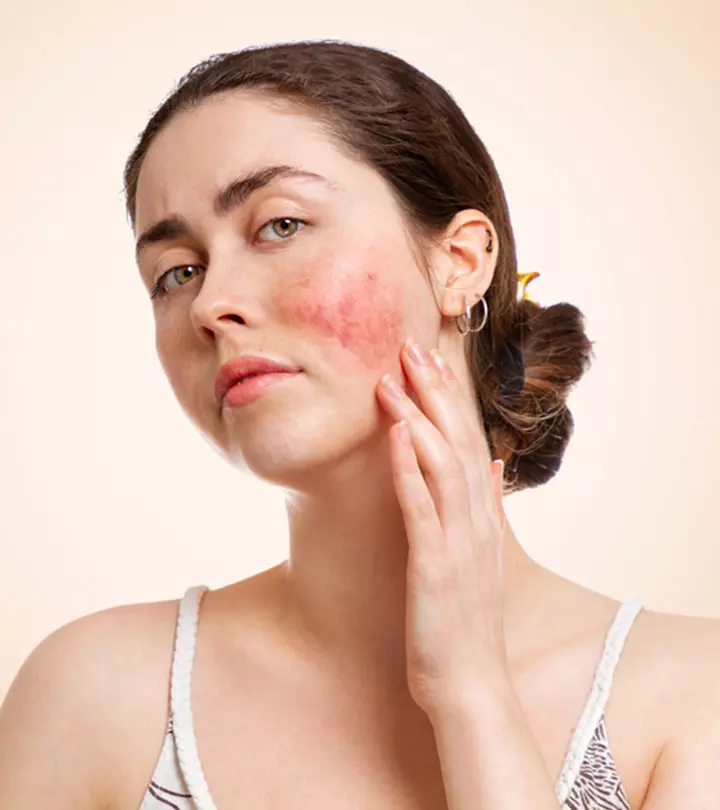
Image: Shutterstock
How often do you get a rash, redness, irritation, itching, or blister on your skin? These are some of the common symptoms of skin inflammation, and we have all experienced them at some point in our lives. Various factors can cause skin inflammation.
Skin inflammation is a sign of your immune system reacting to an infection, a malfunction, or an allergic reaction. In this article, we will go over all you need to know about inflammation of the skin – causes, signs, diagnosis, and possible treatments. Keep reading!
In This Article
What Is Skin Inflammation?
Skin inflammation is also known as dermatitis. It includes a range of conditions like eczema, psoriasis, and contact dermatitis, each with different causes and symptoms. This condition usually occurs as a sign of the body’s immune system fighting against foreign attackers (1). Basically, inflamed skin is irritated skin from an internal or external cause.
The key signs of skin inflammation include skin include redness of the skin, rashes, and breakouts like blisters or abscessesi Bacterial infections occurring anywhere on the body that are characterized by painful pus formation. . In some cases, the breakout is mild with pimples and blisters, whereas in others, the skin can quickly turn red and hot to the touch. There may also be cracks and bleeding in some rashes.
There are mainly two types of inflammation in the skin:
- Acute Skin Inflammation: Acute inflammation of the skin usually lasts up to six weeks or less and can result from various skin issues such as sunburns, acne, and allergic reactions.
- Chronic Skin Inflammation: Chronic inflammation can last beyond six weeks and might be indefinite in some cases. It generally goes hand in hand with eczema and psoriasis – some of the common skin diseases that cause frequent flare-ups that do not usually disappear quickly.

In the next section, we will discuss the main causes that can lead to skin inflammation.
Key Takeaways
- Also called dermatitis, skin inflammation occurs when the body’s immune system fights against foreign attackers.
- Acute skin inflammation and chronic skin inflammation are the two types of skin inflammation.
- A dysfunctional immune system, infection, and allergic reaction can cause skin inflammation.
Causes Of Skin Inflammation
There are multiple factors that cause skin inflammation:
1. Dysfunctional Immune System
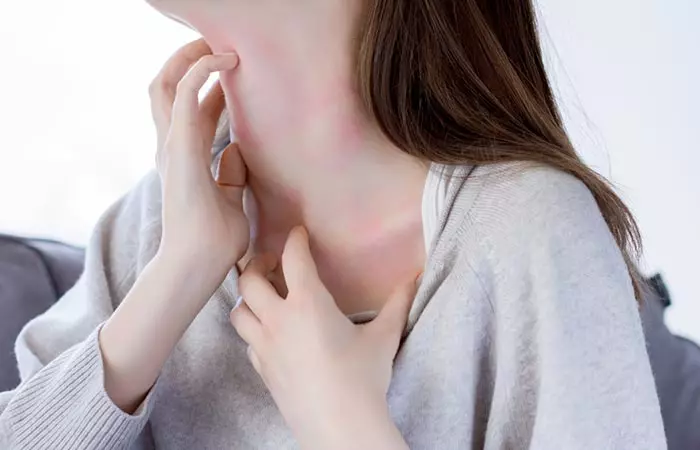
Any kind of dysfunction within the immune system can cause your immunity cells to mistakenly attack the body’s healthy cells. Psoriasis is a classic example of this, where an overreactive immune response speeds up the skin cell production process, leading to red, patchy skin lesions developing on the body (1).
Apart from this, an imbalanced gut microbiome is also linked to skin inflammation, dermatosis, and other chronic inflammatory skin conditions in certain cases.
2. Infection
Bacterial, viral, and fungal infections are other common causes of skin inflammation (1). Some of the most common infections include
- Bacterial skin infections: Cellulitis and staph infections
- Viral skin infections: Herpes simplexi A sexually transmitted infection caused by the Herpes Simplex Virus that affects one’s genitals. and warts
- Fungal infections: Athlete’s foot and ringworm
Apart from these, a chronic skin condition known as seborrheic dermatitis that causes red, scaly skin patches is also believed to be caused by yeast in the oil on the skin.
3. Allergic Reaction
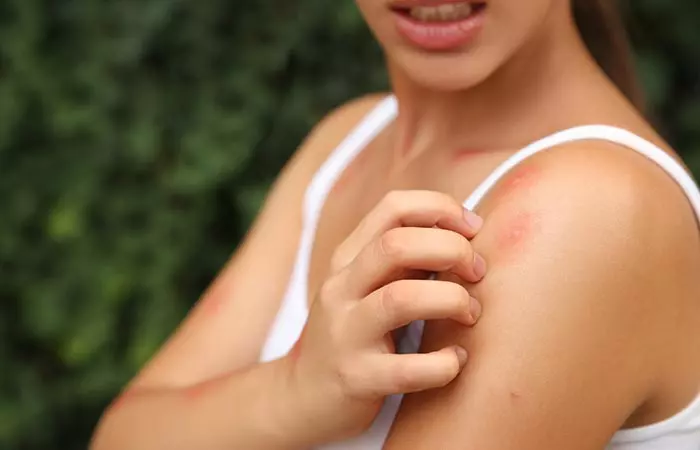
An allergic reaction generally occurs when the immune system overreacts when it senses a foreign substance and sends cells to attack the invader. Certain foods, medications, etc., can all trigger allergic reactions and cause skin redness, hives, and inflammation. Contact dermatitis causes irritation and rashes when your skin encounters poison ivy, poison oak, perfumes, certain skin care products, or strong chemicals (1).
An allergic reaction to some foods such as seafood or medicines can cause skin inflammation as well. For instance, when people with celiac disease eat foods that contain gluten (like wheat), there are chances of skin inflammation causing a condition known as dermatitis herpetiformisi A chronic condition and a form of gluten-sensitive disease characterized by itchy skin and blisters. (2). Many people find relief through various home remedies for allergies that help alleviate their symptoms naturally.
4. Insect Bites
Certain insect bites can also cause allergic reactions leading to skin inflammation (3). When these insects bite or sting, they pierce and introduce their venomous saliva into the skin, triggering an immune response. The immune system recognizes the foreign substances in the venom as threats, setting off a series of complex biochemical reactions in the body, leading to insect bite inflammation of the skin. It may show symptoms like itching, swollen bumps, redness, etc.
4. Photosensitivity
Photosensitivity refers to extreme sensitivity to sunlight that can trigger an immune system response in the body
. Typically, a photosensitive reaction can be caused by spending a lot of time in the sun while taking certain types of medication, like certain antibiotics and diuretics.
Also, exposure to sunlight, especially for anyone with an autoimmune disease such as lupus, can cause a rash or inflammation of the skin. Such photosensitive skin becomes red, burned, and inflamed even after minimal UV radiation exposure (4).
5. Injury Or Wound
Any kind of scrapes, cuts, burns, and surgical wounds can also cause redness and swelling at the site of the injury. This leads to the immune system sending an inflammatory response to help in healing damaged tissues.
6. Genetics
Genetics can be a cause of dermatitis or skin inflammation. If others in your family have the condition, there are more chances that you will have it too.
7. Exposure To Chemicals
Certain types of inflamed skin cases are believed to be caused by exposure to chemicals and other similar irritants (irritant contact dermatitis). Perioral dermatitis (a facial rash around the mouth), for example, is a skin inflammation condition that may be caused by exposure to fluoride in water or toothpaste (5).
8. Environmental Factors

Various environmental factors can make your immune system change the protective barrier of your skin. This can cause more moisture to escape from your skin, which can lead to dermatitis.
Some of the possible environmental factors include certain air pollutants or exposure to tobacco smoke. Fragrances in some cosmetics, skin products, and soap are also possible culprits.
 Did You Know?
Did You Know?Now that you know the causes, it is also important to identify the symptoms of skin inflammation, which are discussed in the next section.
Symptoms Of Skin Inflammation
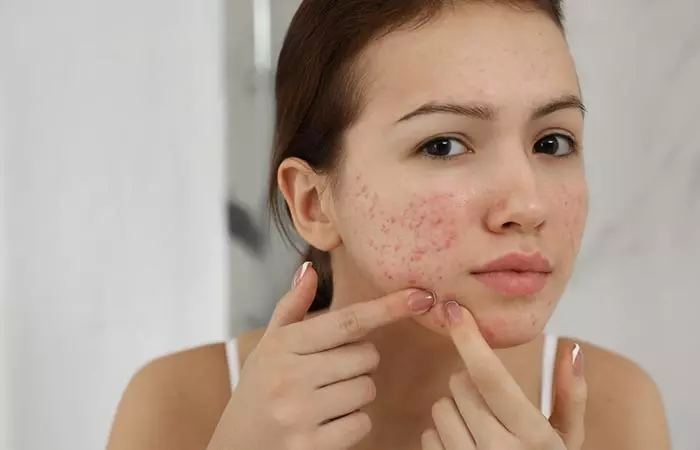
The symptoms of skin inflammation typically depend on the type of inflammation you have. Each type may have one or many of the following symptoms:
- Continuous itching (or itchy inflamed skin)
- Rashes that look and/or feel like a burn
- Rashes and bumps that are usually red
- Skin dryness
- Crusting, scaling, and creasing of the skin
- Fluid-filled blisters
- Thickening, hardening, and swelling of the skin
- Painful ulcers that ooze fluid or bleed when scratched
 Quick Tip
Quick TipSkin inflammation itself is a symptom of several skin conditions:
- Contact Dermatitis: Contact dermatitis is primarily an allergic reaction caused by certain irritants. It results in rashes, skin redness, and painful or itchy skin. It is caused by coming in close contact with an allergen (such as poison ivy) or irritant.
- Eczema Or Atopic Dermatitis: Atopic dermatitis occurs when there is damage to the skin barrier. This causes the skin to become inflamed, red, dry, bumpy, and itchy.
A global survey was conducted on 20,000 US subjects and 10,000 subjects each from Canada, France, Germany, Italy, Spain, the United Kingdom, and Japan. The survey found that the overall prevalence of dermatitis ranged from 2.1% to 4.9% across different countries. It was further found that the prevalence rate was 4.9% in USA, 3.5% in Canada, 4.4% in the EU, and 2.1% in Japan.
- Periorificial Dermatitis: Periorificial dermatitis looks very similar to acne or rosacea, and it generally develops around your eyes, mouth, and nose.
- Neurodermatitis: This type of skin inflammation is typically caused by intense itching or pruritus that irritates the skin’s nerve endings.
- Stasis Dermatitis: Stasis dermatitis is caused due to issues with blood flow in your veins, leading to swollen ankles, itching, scaling, open sores, and pain.
- Dyshidrotic Dermatitis: This type of skin inflammation causes itchy blisters on the edges of your palms, fingers, toes, and the soles of your feet. These blisters can be painful at times.
- Seborrheic Dermatitis: It generally appears as dry, red, flaky, itchy skin on your scalp and some other parts of your body.
- Diaper Dermatitis (Rash): Diaper dermatitis occurs in babies when a rash appears on any part of their skin covered by a diaper. The skin generally gets broken down by wetness and waste products.
Read on to learn how skin inflammation is diagnosed in the next section.
How Is Skin Inflammation Diagnosed?
To diagnose dermatitis or skin inflammation, your healthcare provider will take a closer look at your skin. They usually look for the most common signs of dermatitis, such as a skin rash, scales, redness, dryness, swelling, and more.
Apart from this, they may also ask you if you have recently come in contact with anything that may irritate your skin.
In most cases, your healthcare provider will be able to diagnose signs of dermatitis accurately based on examining your skin closely. However, they might perform the following tests if there is doubt about the severity of the condition:
- A skin biopsy to be able to distinguish one type of dermatitis from another
- Blood work to check for accurate causes of the rash that might be unrelated to inflammation
- Skin allergy test
Knowing how to diagnose the condition is not enough to deal with it. You must also know how to reduce skin inflammation. In the next action, we discuss the right treatment methods to heal inflamed skin.
How Can You Treat Inflamed Skin?
You can treat inflamed skin with various topical treatments and home remedies, depending on its cause or how severe it is. If the rash persists even after 24 hours, it is best to consult a dermatologist.
In some cases, skin inflammation treatment also depends on the type of dermatitis and its location. In general, to begin the treatment of inflamed skin, you first need to take care of the things mentioned below:
- Avoid triggers of dermatitis, such as stress, chemicals, smoke, tobacco, and/or several other irritants that cause or worsen the situation.
- The second step in the treatment is to try remedies on your own.
- Lastly, if there is no improvement, opt for the medication prescribed by your healthcare provider.
I. Home Remedies

There are several treatment options for skin inflammation that you can do at home. However, you need to only do them with proper instructions and permission from your healthcare provider. These remedies include:
- Cold Compress/Wet Wrap Therapy: As the name suggests, wrapping something wet around the skin helps to increase the moisture in it and offer relief from dermatitis symptoms. Avoid this method if there is oozing.
- Ultraviolet Light: Ultraviolet A or B light waves can help treat skin inflammation symptoms. This method should be carried out under a doctor’s supervision.
Apart from the above-listed home remedies, there are various other things you can do at home to reduce skin inflammation. These include:
- Always Protect Your Skin: Make sure to stay away from anything that could irritate the skin, such as chemicals or rough clothing.
- Use Moisturizer Liberally: It is good to develop a habit of applying moisturizer right after you shower or bathe. This helps to keep your skin hydrated.
- Apply Sunscreen: Use sunscreen to keep your skin protected.
- Do Not Overheat Your Environment: Always keep your space at a cool temperature to let your skin breathe. Avoid high humidity.
- Reduce Stress: Take steps to keep your stress levels down and take some time out for rest, leisure, and relaxation. If needed, visit a therapist for counseling.
- Avoid Scratching Your Skin: Scratching your skin continuously can further irritate it and increase the chances of infection.
- Bathe In Lukewarm Water: Make sure to use lukewarm water for showering instead of hot water. Also, limit the number of showers to a maximum of two a day. Avoid washing your skin too much as it can dry out your skin and worsen the inflammation.
- Use A Mild Soap: Do not use soaps that are heavy on chemicals. Instead, go for mild ones that are unscented.
- Try Aloe Vera: Aloe vera soothes the skin and has anti-inflammatory, antimicrobial, and wound-healing properties. Therefore, using aloe vera for skin inflammation can be a helpful, science-backed home remedy (6). You may use fresh aloe vera gel or moisturizers containing it to avail its therapeutic benefits.
II. Diet
Diet is another crucial aspect of the treatment of dermatitis. It is important to avoid food items that can cause inflammation of the skin. These include sweetened fizzy drinks, red meat, fried food, and refined flour used in bread and pastries. The food items that are considered anti-inflammatory (as they contain antioxidants that reduce inflammation) include (7):
- Olive oil
- Tomatoes
- Fruits and berries such as oranges, strawberries, cherries, blueberries, pineapple, and lemon juice
- Nuts like almonds and walnuts
- Greens like kale and spinach
- Fatty fish, such as mackerel, sardines, and salmon
III. Topical Treatments
The topical treatments that can be applied directly to your skin to treat skin inflammation include:
- Immunomodulators, such as calcineurin inhibitors. They work on the immune system directly and help to reduce skin inflammation.
- Various corticosteroid-based skin inflammation creams.
- Antibacterial or antifungal creams for certain types of skin inflammation caused by infections.
- Over-the-counter anti-itching creams such as calamine lotion or hydrocortisone.
Note
: These treatments should be used only under a doctor’s supervision.
IV. Oral Medication
Oral medications for skin inflammation have to be taken on a healthcare professional’s prescription only. Generic antihistamines are prescribed in case of inflamed, red skin caused by an allergic reaction. On the other hand, oral antibiotics and antifungal tablets are prescribed for bacterial infections.
Irrespective of the treatment method you choose, it is important to remember that no treatment can completely eliminate the symptoms of skin inflammation or dermatitis. All the above-listed treatments only help you manage symptoms with varying degrees of success. It is recommended to talk to your healthcare provider about the treatment best suited to your specific condition.
Instead of treating the problem, it is always better to prevent it in the first place. So, let us check out the different ways you can prevent skin inflammation.
Preventive Measures For Skin Inflammation
Here are some simple preventive tips for you to ensure you do not have to deal with skin inflammation in the future.
- Moisturize regularly to maintain skin hydration and protect the skin barrier.
- Use gentle, fragrance-free products to avoid irritation and allergic reactions.
- Wear protective clothing to shield your skin from harsh weather and allergens.
- Manage stress through relaxation techniques such as meditation and yoga as stress can trigger or worsen inflammation.
- Avoid known triggers, such as certain spicy, refined, or sugary foods, strong chemicals, or environmental factors like pollution and heat that may cause flare-ups.
Dayana Sabatin, a fitness and health blogger, shares her experience overcoming chronic inflammation. She writes, “If you’re someone who is consistently inflamed, then follow a strict anti-inflammatory diet for at least 30 days…So if you’re someone who exercises frequently and goes at it hard every single time, then implement a rest day or an active recovery day into your split. Alternatively, if you refuse to skip the gym — implement low-impact workout (i).” She adds that implementing stress management techniques, proper hydration, and good sleep quality will help reduce inflammation. She also recommends taking anti-inflammatory supplements to get enough nutrition and stay healthy.
Infographic: DIY Remedies For Skin Inflammation
While a variety of factors can cause skin inflammation, there are numerous steps you can take at home to manage and alleviate your symptoms. Check out some easy home remedies you may try with ingredients you probably already have. Scroll down!
Some thing wrong with infographic shortcode. please verify shortcode syntax
Skin inflammation is a skin condition that occurs when your immune system is fighting against foreign substances. Multiple factors such as exposure to chemicals, allergic reaction, or infection may cause skin inflammation. While the cause behind skin inflammation may vary, you must look out for symptoms such as rashes, dryness, itching, or pus-filled blisters. You can try simple home remedies such as cold compression, proper moisturization, and bathing in lukewarm water to reduce inflammation. A balanced diet, topical creams, and medications are a few treatment options you can try at home for treating skin inflammation.
Frequently Asked Questions
Does skin inflammation go away?
This depends on the type of skin inflammation. In most cases, skin inflammation can be treated with home remedies. If it persists after a few days, consult your doctor for further treatment.
Does milk cause skin inflammation?
No, milk does not cause inflammation. In fact, milk and milk proteins can reduce inflammation and soothe your skin (8).
How can inflammation impact the aging process of the skin?
Yes, inflammation can impact the aging process of the skin. Chronic inflammation can weaken skin structure and may eventually lead to the degradation of collagen and elastin that impairs skin barrier function (9)
Illustration: Skin Inflammation: Causes, Symptoms, Diagnosis, And Treatment
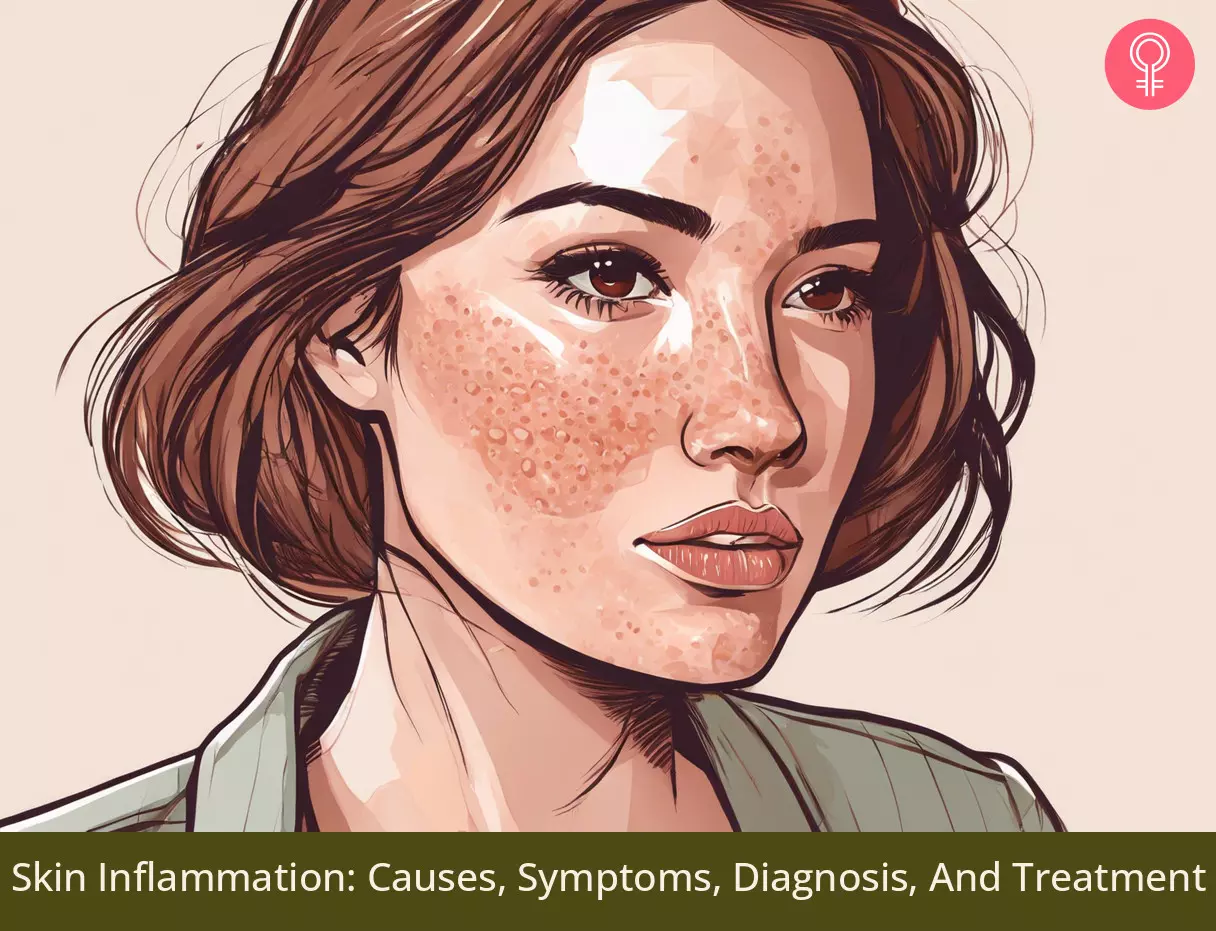
Image: Stable Diffusion/StyleCraze Design Team
Discover the number one best remedy for eczema in this enlightening video. Explore effective solutions to alleviate eczema symptoms and promote healthier skin.
Personal Experience: Source
StyleCraze's articles are interwoven with authentic personal narratives that provide depth and resonance to our content. Below are the sources of the personal accounts referenced in this article.
i. 5 Things I Do To Decrease Inflammation In My Body Naturallyhttps://medium.com/in-fitness-and-in-health/5-things-i-do-to-decrease-inflammation-in-my-body-naturally-e558646eb821
References
Articles on StyleCraze are backed by verified information from peer-reviewed and academic research papers, reputed organizations, research institutions, and medical associations to ensure accuracy and relevance. Read our editorial policy to learn more.
- Immunology and Skin in Health and Disease
https://www.ncbi.nlm.nih.gov/pmc/articles/PMC4292093/ - Treatment for Celiac Disease
https://www.niddk.nih.gov/health-information/digestive-diseases/celiac-disease/treatment - Presentation and management of insect bites in out-of-hours primary care: a descriptive study
https://www.ncbi.nlm.nih.gov/pmc/articles/PMC10503338/ - Photosensitivity in Cutaneous Lupus Erythematosus
https://www.ncbi.nlm.nih.gov/pmc/articles/PMC3539182/ - Perioral Dermatitis
https://www.ncbi.nlm.nih.gov/books/NBK525968/ - Pharmacological Update Properties of Aloe Vera and its Major Active Constituents
https://pubmed.ncbi.nlm.nih.gov/32183224/ - Anti-Inflammatory Properties of Diet: Role in Healthy Aging
https://www.ncbi.nlm.nih.gov/pmc/articles/PMC8389628/ - Milk Proteins—Their Biological Activities and Use in Cosmetics and Dermatology
https://www.ncbi.nlm.nih.gov/pmc/articles/PMC8197926/ - The Dynamics of the Skin’s Immune System
https://www.ncbi.nlm.nih.gov/pmc/articles/PMC6515324/ - So depression is an inflammatory disease, but where does the inflammation come from?
https://www.ncbi.nlm.nih.gov/pmc/articles/PMC3846682/ - Inflammaging in Skin and Other Tissues – The Roles of Complement System and Macrophage
https://www.ncbi.nlm.nih.gov/pmc/articles/PMC4082166/
Read full bio of Dr. Madhuri Agarwal
Read full bio of Arshiya Syeda
Read full bio of Ramona Sinha
Read full bio of Monomita Chakraborty






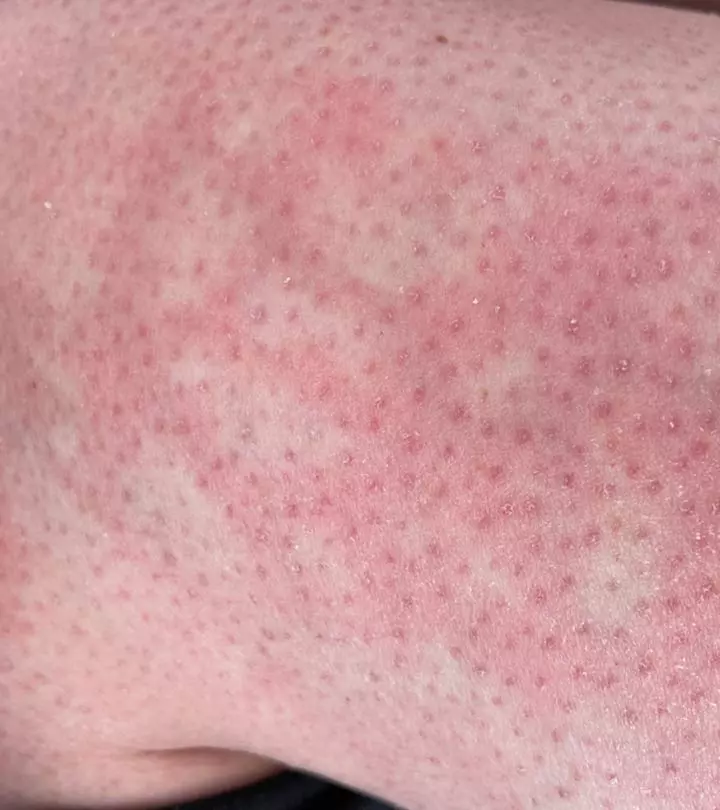
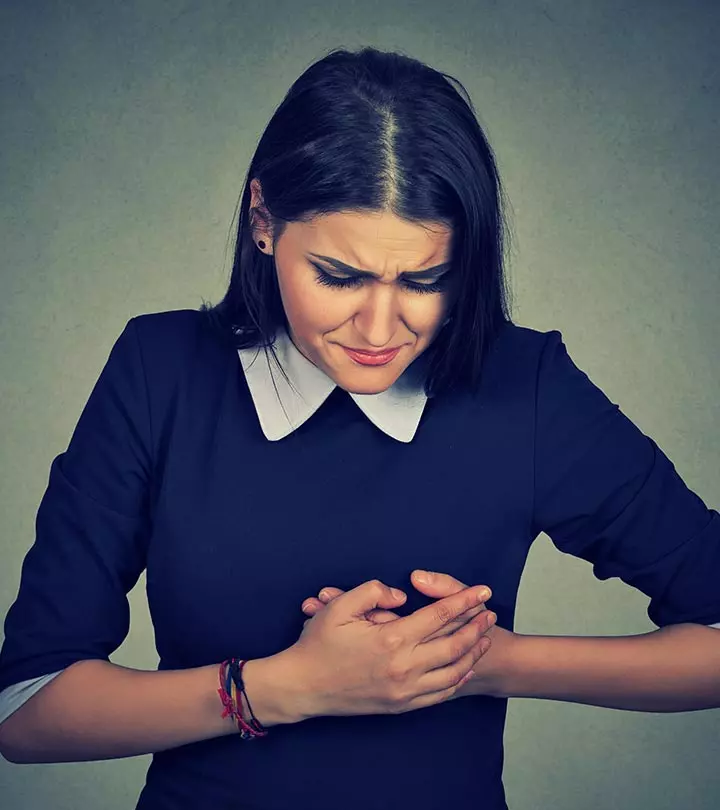
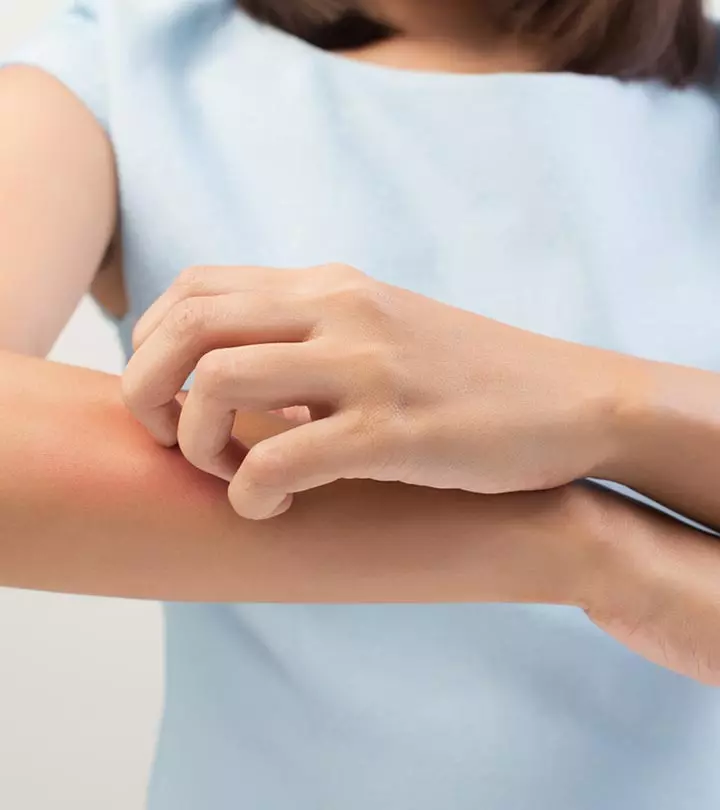
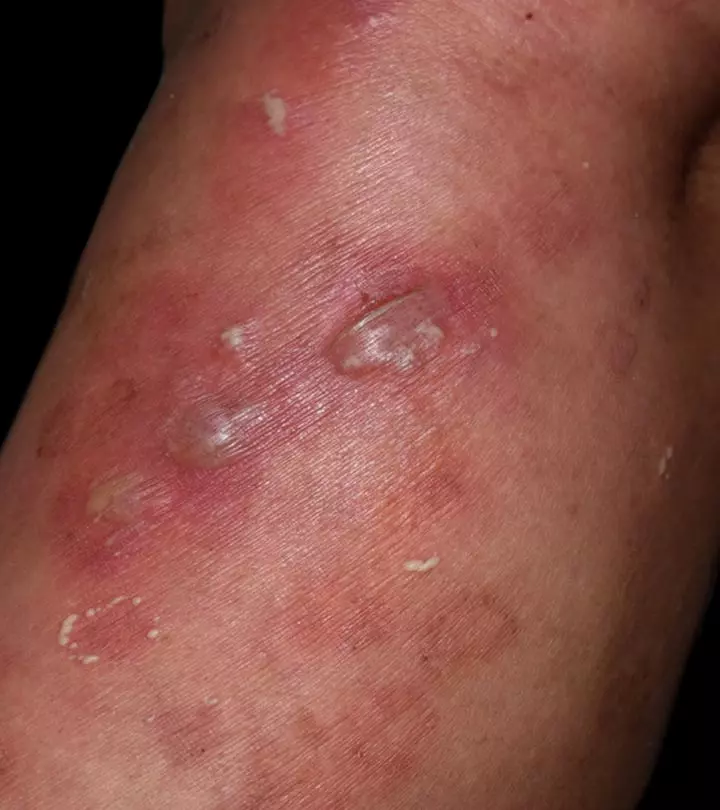
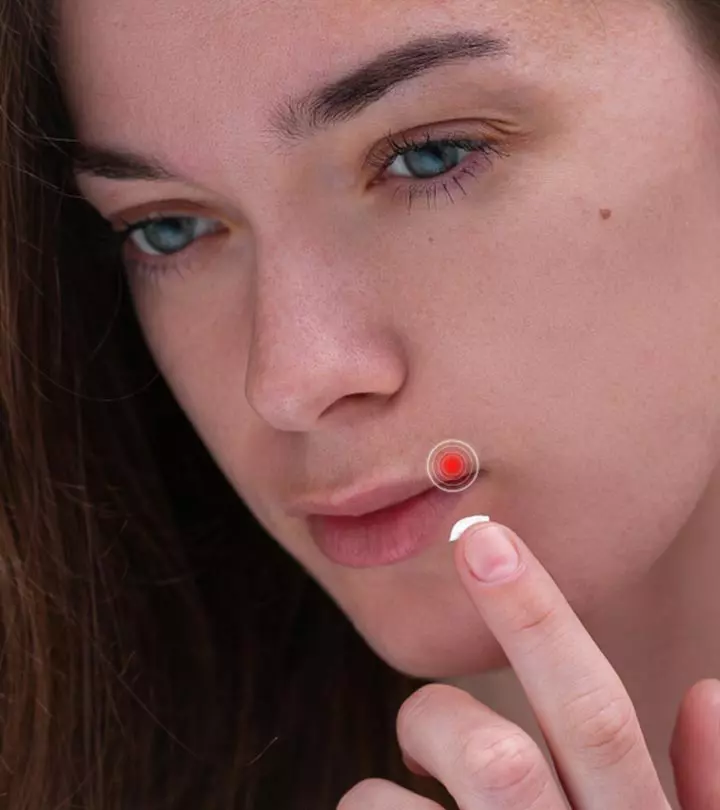
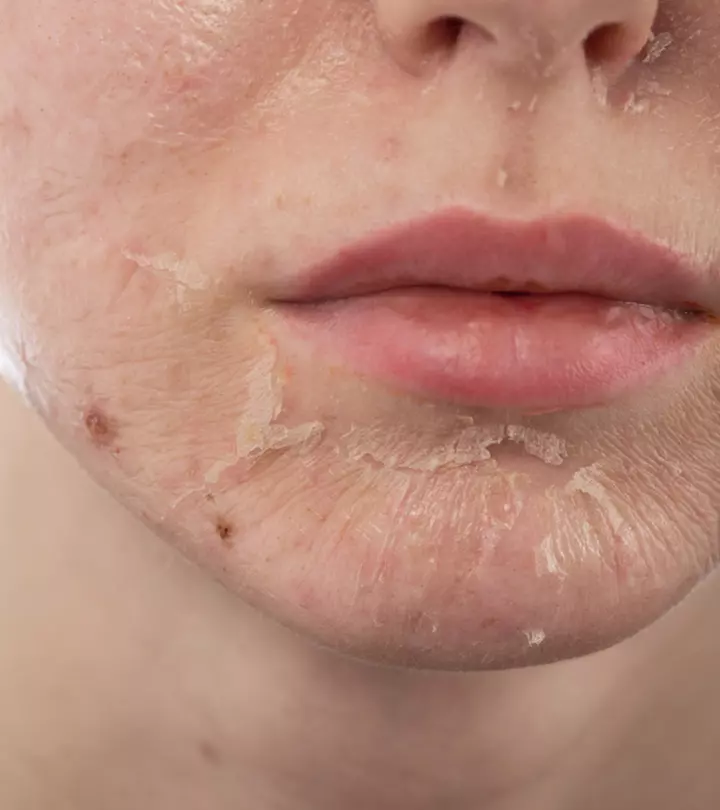
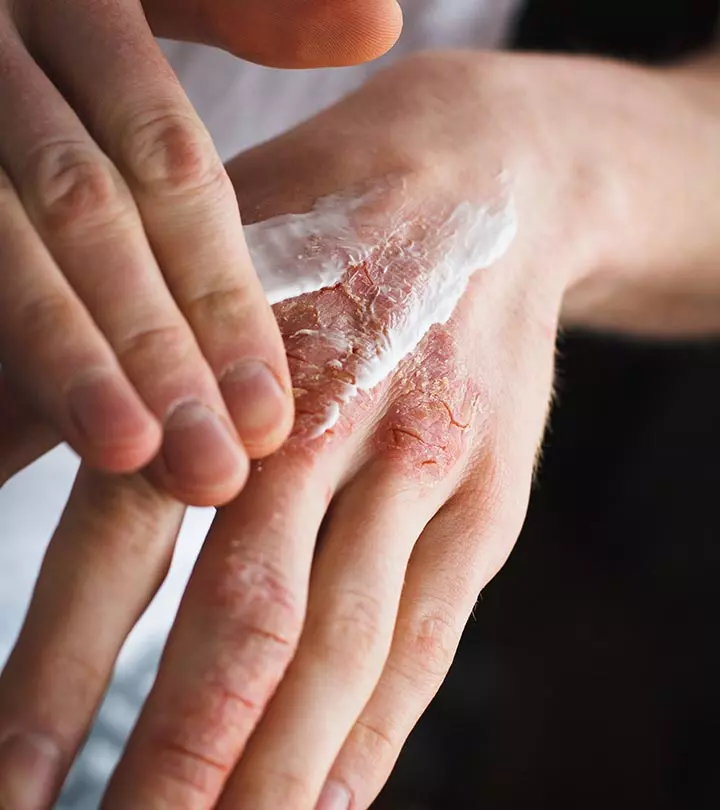
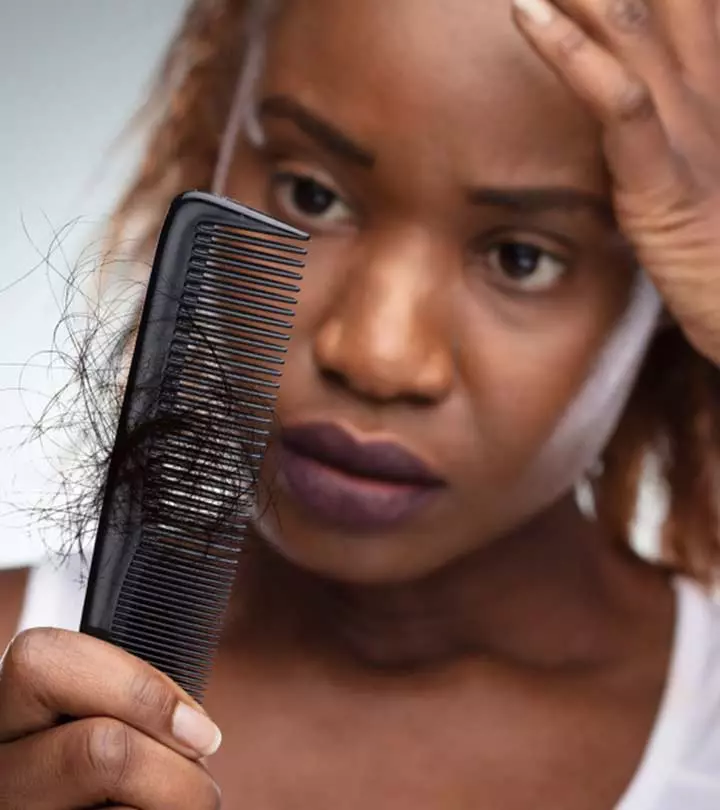
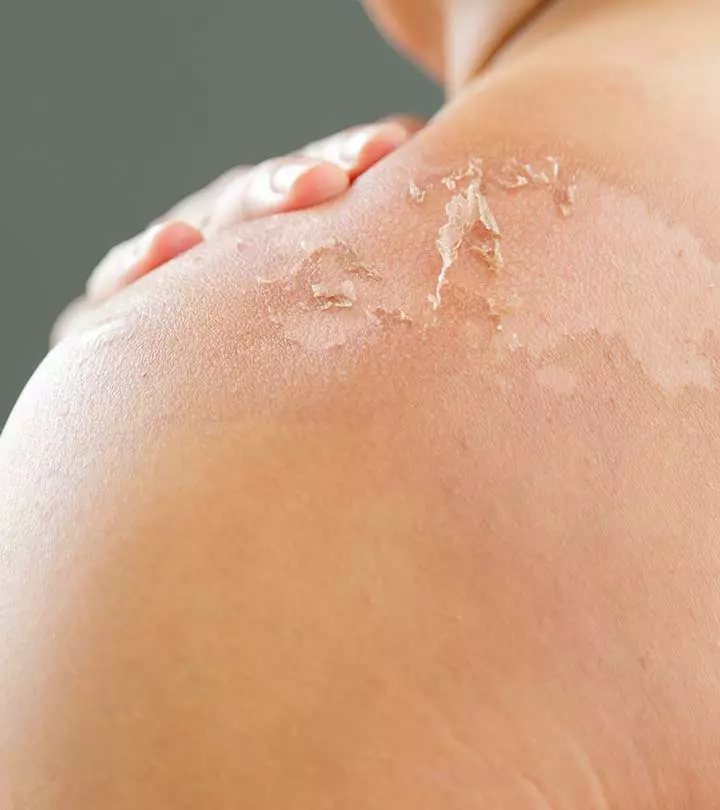



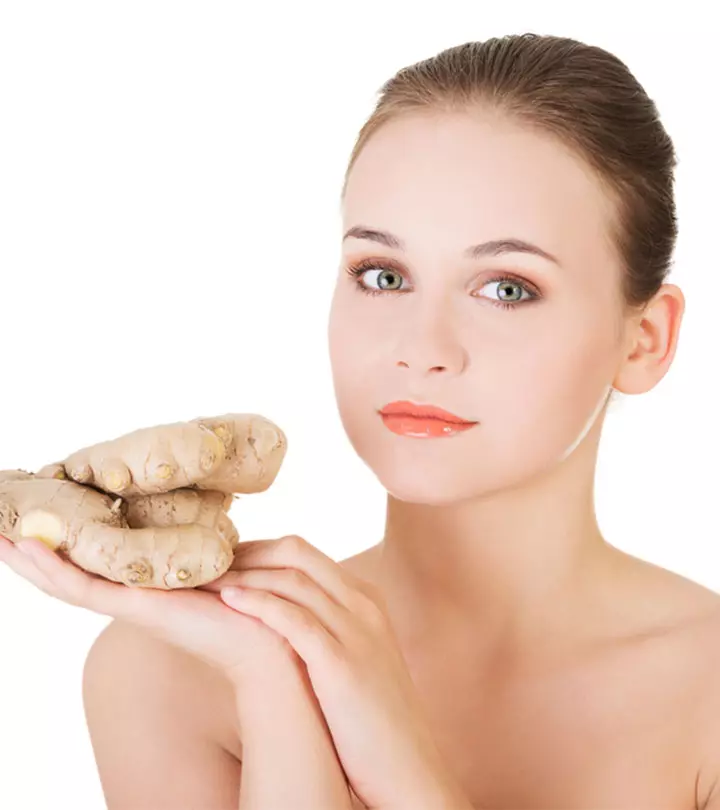
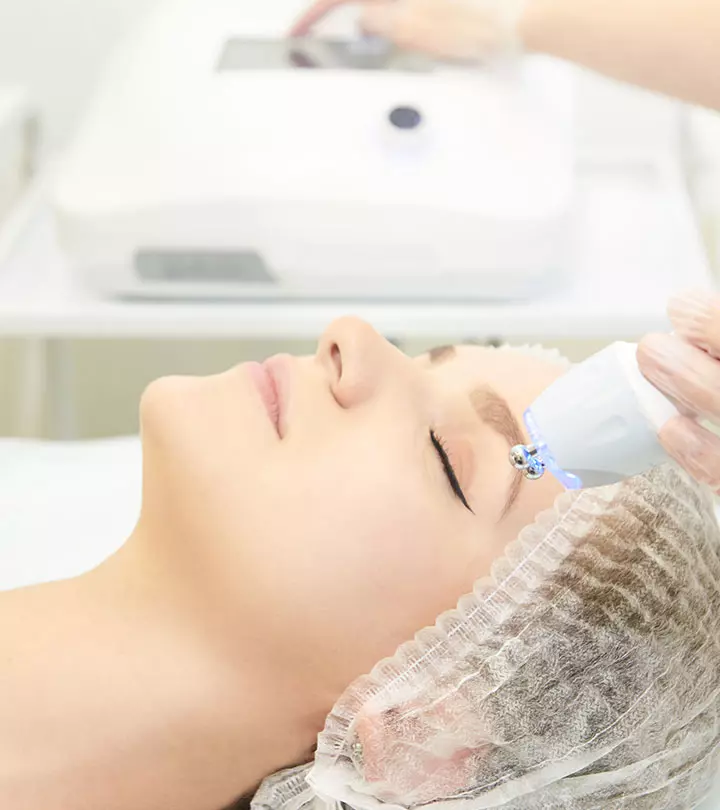


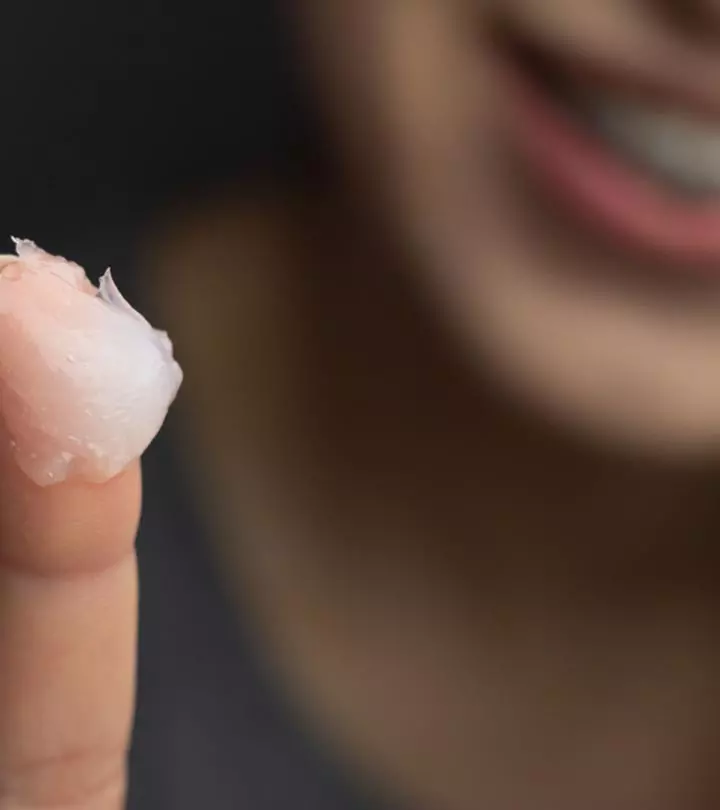




Community Experiences
Join the conversation and become a part of our empowering community! Share your stories, experiences, and insights to connect with other beauty, lifestyle, and health enthusiasts.